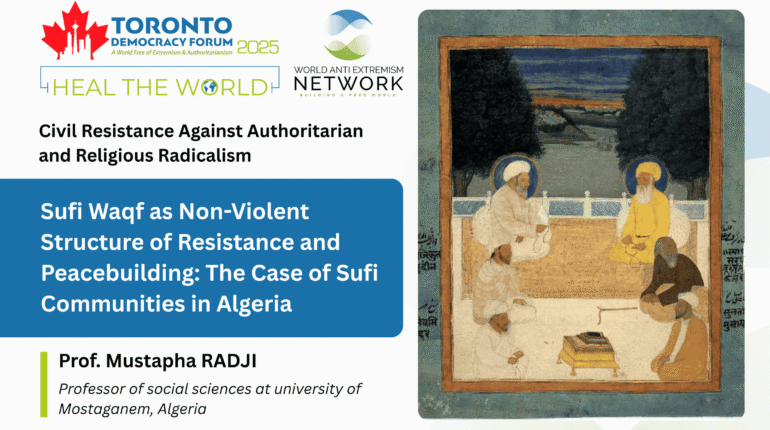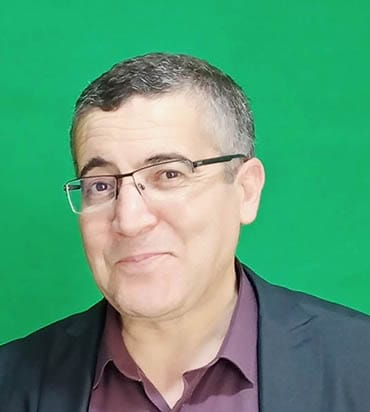
When the discussion of civic resistance comes up, several civic institutions are mentioned. Sufi waqfs are one among them, which are acting as durable community anchors that mediate authority and social life. This paper is articulated by Mustapha Radji, Professor at the University of Mostaganem, Algeria, in which he examines how these waqfs, with a special focus on the Alawiyya Sufi order, have functioned as peaceful engines of civic resistance and peacebuilding across changing political landscapes. He argues in this paper that clearer foundation laws and stronger legal protections would unlock waqfs’ full potential as credible partners in countering both authoritarianism and violent radicalism.
The paper serves as the historical evidence and concrete policy steps that make that case, a concise roadmap for anyone interested in how indigenous civic institutions can sustain pluralism and non-violent civic engagement.
About the author

Mustapha Radji is Professor of Sociology of Development at the University of Mostaganem (Algeria). His research and advocacy highlight the role of Sufi communities in resisting authoritarianism and extremism, advancing peacebuilding, and fostering interfaith collaboration with the Catholic Church in Algeria. He works closely with Sufi organizations to introduce a culture of peace into national education and to promote mediation skills in university programs. He is also engaged in lobbying efforts with Sufi organizations to establish a new law on foundations, providing Sufi communities with a legal framework to contribute effectively as strong civil society actors. In addition, he launched the online Hayek Institute of Economic Thinking in Algeria to promote economic freedom, after receiving training from the Atlas Network. Prof. Radji is a fellow of the Islam & Liberty Network and serves as Ambassador of the World Anti-Extremism Network (WAE) in Algeria.

